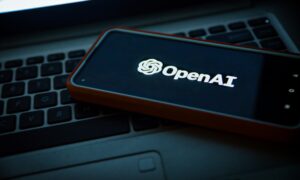Microsoft withdraws from the OpenAI board in the face of an increasing antitrust investigation and a $13 billion investment.
TakeAway Points:
- Microsoft leaves OpenAI’s board despite a $13 billion investment and a solid collaboration in the face of growing antitrust scrutiny.
- Apple chooses to hold frequent strategy discussions over an observer position on OpenAI’s board.
- Regulators in the US and the EU are looking at the impact of Big Tech on AI, and there may be antitrust cases over Microsoft and OpenAI’s partnership.
Microsoft Leaves the OpenAI Board
Microsoft Corp. has relinquished its observer seat on OpenAI’s board amid increasing scrutiny from global antitrust regulators over Big Tech’s influence in artificial intelligence. The US software giant, which has invested $13 billion in OpenAI, the creator of ChatGPT, announced its withdrawal through a letter to OpenAI. This move comes as European regulators plan to survey Microsoft’s rivals about OpenAI’s exclusive use of its technology, highlighting the mounting pressure on one of the world’s most valuable companies.
“This position provided insights into the board’s activities without compromising its independence. We have witnessed significant progress from the newly formed board and are confident in the company’s direction. Therefore, Microsoft’s role on the board was no longer necessary.” Keith Dolliver, Microsoft’s deputy general counsel, stated in the letter.
Despite stepping down, Dolliver emphasized that OpenAI remains one of Microsoft’s “most valued partners.”
Apple declines Observer Position
Apple Inc., which had been expected to take up a similar observer role on OpenAI’s board, will also not join, according to a person with direct knowledge of the matter. Instead, OpenAI will host regular meetings with partners such as Microsoft and Apple, as well as investors such as Thrive Capital and Khosla Ventures. This is part of “a new approach to informing and engaging key strategic partners” under Sarah Friar, the former Nextdoor boss who was recently hired as OpenAI’s first chief financial officer.
The decision by both tech giants to step back from board roles comes as antitrust authorities in the EU and US examine the partnership between Microsoft and OpenAI. The European Commission announced in June that it was exploring the possibility of an antitrust investigation into the tie-up, while the US Federal Trade Commission has also begun scrutinizing investments made by Big Tech companies, including Microsoft, Amazon, and Google, into generative AI start-ups.
Strategic Alliance and Antitrust Issues
The partnership between Microsoft and OpenAI has been crucial for both companies. OpenAI has relied on Microsoft for computing power and cloud storage worth billions of dollars. Microsoft CEO Satya Nadella played a key role during the boardroom upheaval at OpenAI in November, when CEO Sam Altman was abruptly fired and then reinstated days later. Investing in OpenAI has given Microsoft an early lead in the generative AI race, with the company struggling to keep up with demand for its AI services, which have driven sales at its Azure cloud computing platform over the past three quarters.
Despite the close collaboration, Microsoft does not hold a conventional equity stake in OpenAI. Instead, it has an entitlement to a share of the profits from a subsidiary of OpenAI, up to a certain limit. OpenAI’s website states that it “remains an entirely independent company governed by the OpenAI Nonprofit.” Both companies have downplayed their ties as antitrust concerns have grown.
“We’re grateful to Microsoft for voicing confidence in the board and the direction of the company, and we look forward to continuing our successful partnership,” an OpenAI spokesperson commented.
OpenAI’s eight-person board includes notable figures such as Sam Altman, Larry Summers, the former US Treasury secretary, and Fidji Simo, CEO of Instacart. The board is chaired by Bret Taylor, former co-CEO of Salesforce and co-founder of AI start-up Sierra.



































